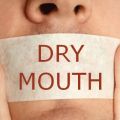2/11/2020
TMJ: How it Might Be Affecting You, And How to Find Relief

6/21/2021
More than 10 million Americans suffer from a temporomandibular joint or TMJ disorder. Arthritis, muscle pain, injury (or all of the above) can cause ear pain or pain that radiates to your face or down your neck. It can cause your jaw to pop or click or, in severe cases, even lock when you open it.
Causes
The temporomandibular joint combines a hinge action with sliding motions. The parts of the bones that interact in the joint are covered with cartilage and are separated by a small shock-absorbing disk, which normally keeps the movement smooth.
Painful TMJ disorders can occur if:
Painful TMJ disorders can occur if:
- The disk erodes or moves out of its proper alignment
- The joint's cartilage is damaged by arthritis
- The joint is damaged by a blow or other impact
Symptoms of TMJ
If you’re experiencing any of the following, you may be dealing with a temporomandibular joint disorder:
- Pain or tenderness in your jaw joint
- Pain in your neck or shoulders
- Tired feeling or pain in your face
- Swelling on the side of your face
- Pain in or around your ear
- Pain while chewing or an uncomfortable bite
- Toothaches
- Headaches
- Dizziness
- Hearing problems or ringing in the ears (tinnitus)
- Locked jaw, which makes it difficult to open or close your mouth
- Clicking or grating sensation when opening and closing your mouth
Should you notice any of these symptoms, let your doctor know. Your dentist can help indicate the presence of TMD and create an effective treatment just for you.
Risk factors
Factors that may increase the risk of developing TMJ disorders include:
- Various types of arthritis, such as rheumatoid arthritis and osteoarthritis
- Jaw injury
- Long-term (chronic) grinding or clenching of teeth
- Certain connective tissue diseases that cause problems that may affect the temporomandibular joint
How is TMJD diagnosed?
TMJ disorders can be difficult to diagnose. There are no standard tests to diagnose these disorders. Your doctor may refer you to a dentist or an ear, nose, and throat (ENT) specialist to diagnose your condition.
Your doctor may examine your jaw to see if there is swelling or tenderness if you have symptoms of a TMJ disorder. Your doctor may also use several different imaging tests. These can include:
Your doctor may examine your jaw to see if there is swelling or tenderness if you have symptoms of a TMJ disorder. Your doctor may also use several different imaging tests. These can include:
- X-rays of the jaw
- CT scan of the jaw to see the bones and joint tissues
- MRI of the jaw to see if there are problems with the structure of the jaw
Treatment options for TMJ
TMJ has many treatment options. Your first line of care can start at home. But after you’ve exhausted at-home treatment options for your jaw, you may need to see your doctor for further care.
At-home treatment
As you know and practice self-care for your temporomandibular jaw disorder, you may find relief and healing. You can do the following at home:
- Eat soft foods. Load up on non-chewy foods and avoid foods that require wide bites like thick sandwiches.
- Take an over-the-counter anti-inflammatory medication like ibuprofen or naproxen.
- Practice good posture and avoid resting your chin on your hand.
- Avoid extreme or unnecessary jaw movements. Skip the chewing gum, place a hand under your chin when you yawn, and avoid things like singing or yelling that might cause you to open your jaw too wide.
- Position your jaw with your teeth slightly apart as often as possible. Place your tongue between your teeth if you have problems with grinding or clenching your teeth.
- Place moist heat or cold packs on your jaw and the side of your face for about 10 minutes. You can do this several times a day.
- Learn to relax. You’ll need a few stress management techniques in your arsenal to help you relax and loosen your jaw. Consider asking your doctor or dentist about how physical therapy can help.
- Massage your neck and jaw muscles. Where appropriate, ask your doctor or physical therapist about gentle stretches you can do at home.
Medical treatment
See your doctor if the pain and tenderness in your jaw are persistent, or if you can’t open and close your mouth. A doctor may recommend the following types of treatment:
- Medications such as pain relievers, muscle relaxers, or anti-inflammatory drugs.
- Oral splints or mouth guards. These oral devices can be soft or hard and usually slip over your teeth to help keep your jaw in place.
- Physical therapy. A physical therapist can give you stretches and massage techniques to help strengthen and stretch your jaw. They can also do ultrasounds and an evaluation of behaviors that might be making your TMJ worse.
- Surgical options. When other treatment options can’t relieve your pain, your doctor may suggest surgery or other procedures. Some of these might include open joint surgery, arthrocentesis, injections at the joint, TMJ arthroscopy, or modified condylotomy. These procedures range from non-invasive to traditional surgery.
You may need help from your doctor if your symptoms don’t improve with these treatments. Depending on your symptoms, your doctor may prescribe or recommend the following:
- pain medications (such as ibuprofen)
- medications to relax the muscles of the jaw (such as Flexeril, Soma, or Valium)
- medications to help reduce swelling in the jaw (corticosteroid drugs)
- stabilization splints or bite guards to prevent teeth grinding
- Botox to reduce tension in the muscle and nerves of the jaw
- cognitive behavioral therapy to help reduce stress
How can TMJD be prevented?
You may not be able to prevent TMJD from developing, but you might be able to reduce symptoms by lowering your stress levels. It could be helpful to try to stop grinding your teeth if this is an issue for you. Possible solutions for teeth grinding include wearing a mouth guard at night and taking muscle relaxants. You may also help prevent teeth grinding by reducing your overall stress and anxiety through counseling, exercise, and diet.
Most cases of TMJD warrant changes in lifestyle habits, possibly combined with medications to ease any pain and discomfort. Aggressive treatments are rarely needed. Talk to your doctor about your options to determine what treatment is right for you.
If everything has been done and you still experience extreme pain, then it’s time to get a Doral TMJ treatment or a Coral Gables TMJ treatment. Seek help from the best Doral General dentistry or a Gables General dentistry.
Dr. Sonia Olivares focuses on different teeth and dental problems anywhere in Doral and Gables. She also specializes in smile makeover which is focusing on achieving highly aesthetic and natural-looking smiles. Her dental office also offers flexible payment options that will surely be affordable for you. She has an online consultation or you can also call her using the numbers below:
- iSmile Doral: 305-620-8272
- iSmile Coral Gables: 305-396-1026
Other articles and publications:
The TMJ is among the more complex joints in the entire body so it can lend itself to several disorders if one or more specific parts of the joint start to function abnormally.
If your jaw often feels painful, locks or clicks when you eat, you might have a temporomandibular joint disorder (TMJ). This is a common problem that is estimated to affect around 30 percent of adults
10/16/2019
Suffering from TMJ disorder is painful. This occurs when the temporomandibular joint (which connects the jaw and temporal bones) is inhibited due to problems with the jaw or facial muscles.
7/15/2020
Learn about Neuromuscular dentistry or TMJ/TMD with Dr. Sonia Olivares. For your Temporomandibular Joint (TMJ) disorders / TMD consultation, call us at 305-396-1026
3/29/2022
Dry mouth can lead to severe dental health problems and the condition should not be ignored. A dry mouth is a sensation that you do not have enough saliva in your mouth.
5/27/2021
Learn the pros and cons of professional teething vs teeth whitening over the counter kit. Call iSmile by Dr. Sonia Olivares at 305-396-1026 for consultation
2/15/2021
Articles and publications of other companies:
Great-looking teeth don’t happen overnight. Take charge of your health if you want to keep your chompers looking classy. That’s why we’ve created a comprehensive list of 10 tips for a healthier smile.
4/14/2021








